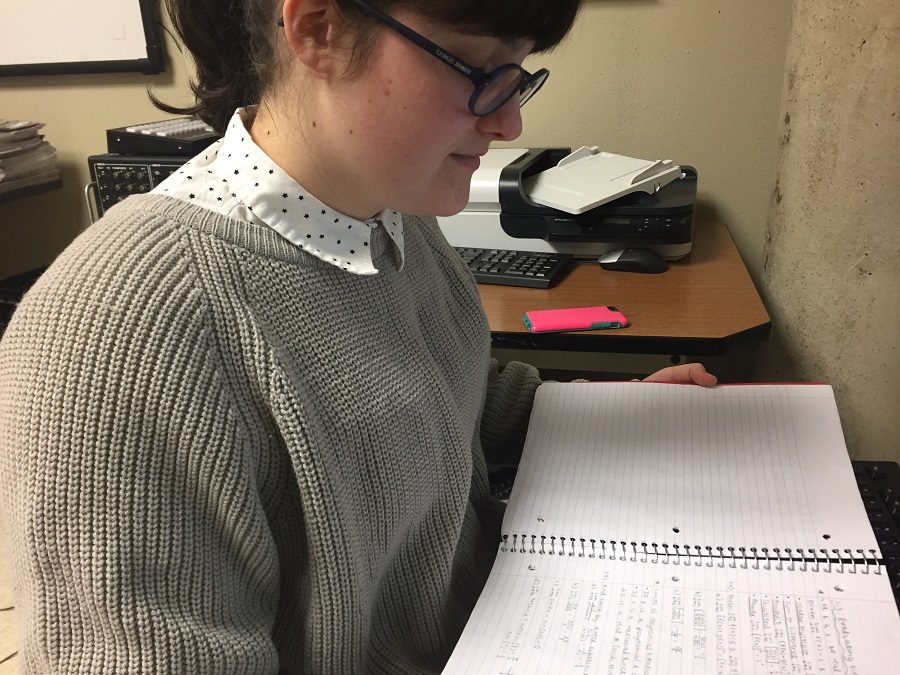Study tips, tricks
Students make homework quick, painless
HARD AT WORK. Natalie Brinkman, 11, studies her math notes. Organizing and completing homework can be difficult, and it is easy to feel unmotivated during dreary winter days. Tips and tricks can be helpful in reworking your study habits and keeping you on track for the remainder of the school year. Photo courtesy of Anne Marsh.
It is that point in the year when students are beginning to feel the winter blues, and senioritis is kicking in no matter what grade you are in.
When you come home from school, work, or practice, the last thing you feel like doing is homework, but here are some tips and tricks to hopefully make your work become a bit more efficient and painless.
- Make a plan. Even if you think you remember all of the work you need to complete, it is much easier to visualize a sequence in which you will complete it when everything is written out. Go through each of your bells, and write out every small task you need to do. Try to estimate how much time you believe each assignment will take.
- The early bird gets the worm. The earlier you start your homework, the less tired you are. Also, if you find that you have a question about an assignment, it is much easier to text a friend or email a teacher at 4:00 p.m. than 4:00 a.m.
- Shhh. Before you pull out a single textbook, make sure you are in a quiet place with minimal distractions. Play music softly if you find it helpful, preferably with minimal lyrics to hold your attention. Keep snacks and water nearby to fuel your brain, so you do not need to repeatedly get up to walk to the fridge. Getting organized and having all of the supplies you will need (food, computer, calculator) nearby can clear your mind of any future stress or uncertainty.
- Start small. If you know you have a chemistry test to study for or an English paper to write, try to leave those for last and get small assignments out of the way that you know will not take a great amount of time or effort. If math is your strongest subject, do your worksheet on factoring before diving in depth into concepts or assignments that will be more mentally taxing.
- Take five. After you spent a significant amount of time working, it can be extremely helpful to take intermittent breaks. Discipline yourself, setting a timer on your phone for 20 or 30 minute intervals allotted for diligent work before you decide to check Instagram or reply to texts.
- Prioritize. After you have been working for awhile, it can sometimes be difficult to motivate yourself to complete those history notes you told yourself you would get done early. Prioritize what needs to be done for tomorrow, and do not push yourself to work ahead if you feel like you are on the verge of a mental breakdown. Plan ahead when you will complete those assignments, and do not forget to set aside work for the next day to make up for lost time.
- Catch some ZZZ’s. When you are in high-stress mode or are in a good rhythm while completing your work, it can sometimes be hard to find time for sleep. However, all of the studying in the world cannot help you if your mind is foggy for your test or you doze off during your lecture the next day.







